Chen Quan
An Energy-efficient Ordered Transmission-based Sequential Estimation
Apr 15, 2025Abstract:Estimation problems in wireless sensor networks typically involve gathering and processing data from distributed sensors to infer the state of an environment at the fusion center. However, not all measurements contribute significantly to improving estimation accuracy. The ordered transmission protocol, a promising approach for enhancing energy efficiency in wireless networks, allows for the selection of measurements from different sensors to ensure the desired estimation quality. In this work, we use the idea of ordered transmission to reduce the number of transmissions required for sequential estimation within a network, thereby achieving energy-efficient estimation. We derive a new stopping rule that minimizes the number of transmissions while maintaining estimation accuracy similar to general sequential estimation with unordered transmissions. Moreover, we derive the expected number of transmissions required for both general sequential estimation with unordered transmissions and proposed sequential estimation with ordered transmissions and make a comparison between the two systems. Simulation results indicate that our proposed scheme can efficiently reduce transmissions while still ensuring the quality of estimation.
Hybrid Human-Machine Perception via Adaptive LiDAR for Advanced Driver Assistance Systems
Feb 24, 2025


Abstract:Accurate environmental perception is critical for advanced driver assistance systems (ADAS). Light detection and ranging (LiDAR) systems play a crucial role in ADAS; they can reliably detect obstacles and help ensure traffic safety. Existing research on LiDAR sensing has demonstrated that adapting the LiDAR's resolution and range based on environmental characteristics can improve machine perception. However, current adaptive LiDAR approaches for ADAS have not explored the possibility of combining the perception abilities of the vehicle and the human driver, which can potentially further enhance the detection performance. In this paper, we propose a novel system that adapts LiDAR characteristics to human driver's visual perception to enhance LiDAR sensing outside human's field of view. We develop a proof-of-concept prototype of the system in the virtual environment CARLA. Our system integrates real-time data on the driver's gaze to identify regions in the environment that the driver is monitoring. This allows the system to optimize LiDAR resources by dynamically increasing the LiDAR's range and resolution in peripheral areas that the driver may not be attending to. Our simulations show that this gaze-aware LiDAR enhances detection performance compared to a baseline standalone LiDAR, particularly in challenging environmental conditions like fog. Our hybrid human-machine sensing approach potentially offers improved safety and situational awareness in real-time driving scenarios for ADAS applications.
Distributed Quantized Detection of Sparse Signals Under Byzantine Attacks
Apr 27, 2023



Abstract:This paper investigates distributed detection of sparse stochastic signals with quantized measurements under Byzantine attacks. Under this type of attack, sensors in the networks might send falsified data to degrade system performance. The Bernoulli-Gaussian (BG) distribution in terms of the sparsity degree of the stochastic signal is utilized for modeling the sparsity of signals. Several detectors with improved detection performance are proposed by incorporating the estimated attack parameters into the detection process. First, we propose the generalized likelihood ratio test with reference sensors (GLRTRS) and the locally most powerful test with reference sensors (LMPTRS) detectors with adaptive thresholds, given that the sparsity degree and the attack parameters are unknown. Our simulation results show that the LMPTRS and GLRTRS detectors outperform the LMPT and GLRT detectors proposed for an attack-free environment and are more robust against attacks. The proposed detectors can achieve the detection performance close to the benchmark likelihood ratio test (LRT) detector, which has perfect knowledge of the attack parameters and sparsity degree. When the fraction of Byzantine nodes are assumed to be known, we can further improve the system's detection performance. We propose the enhanced LMPTRS (E-LMPTRS) and enhanced GLRTRS (E-GLRTRS) detectors by filtering out potential malicious sensors with the knowledge of the fraction of Byzantine nodes in the network. Simulation results show the superiority of proposed enhanced detectors over LMPTRS and GLRTRS detectors.
Human-machine Hierarchical Networks for Decision Making under Byzantine Attacks
Jan 25, 2023



Abstract:This paper proposes a belief-updating scheme in a human-machine collaborative decision-making network to combat Byzantine attacks. A hierarchical framework is used to realize the network where local decisions from physical sensors act as reference decisions to improve the quality of human sensor decisions. During the decision-making process, the belief that each physical sensor is malicious is updated. The case when humans have side information available is investigated, and its impact is analyzed. Simulation results substantiate that the proposed scheme can significantly improve the quality of human sensor decisions, even when most physical sensors are malicious. Moreover, the performance of the proposed method does not necessarily depend on the knowledge of the actual fraction of malicious physical sensors. Consequently, the proposed scheme can effectively defend against Byzantine attacks and improve the quality of human sensors' decisions so that the performance of the human-machine collaborative system is enhanced.
Loss Attitude Aware Energy Management for Signal Detection
Jan 18, 2023
Abstract:This work considers a Bayesian signal processing problem where increasing the power of the probing signal may cause risks or undesired consequences. We employ a market based approach to solve energy management problems for signal detection while balancing multiple objectives. In particular, the optimal amount of resource consumption is determined so as to maximize a profit-loss based expected utility function. Next, we study the human behavior of resource consumption while taking individuals' behavioral disparity into account. Unlike rational decision makers who consume the amount of resource to maximize the expected utility function, human decision makers act to maximize their subjective utilities. We employ prospect theory to model humans' loss aversion towards a risky event. The amount of resource consumption that maximizes the humans' subjective utility is derived to characterize the actual behavior of humans. It is shown that loss attitudes may lead the human to behave quite differently from a rational decision maker.
Efficient Ordered-Transmission Based Distributed Detection under Data Falsification Attacks
Jul 18, 2022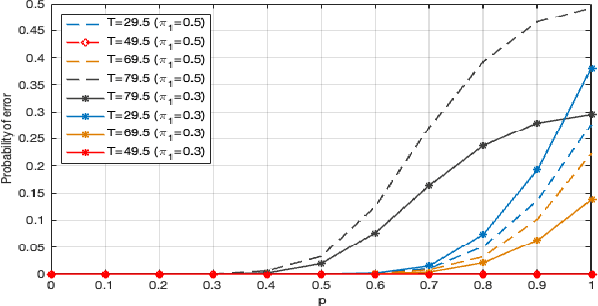
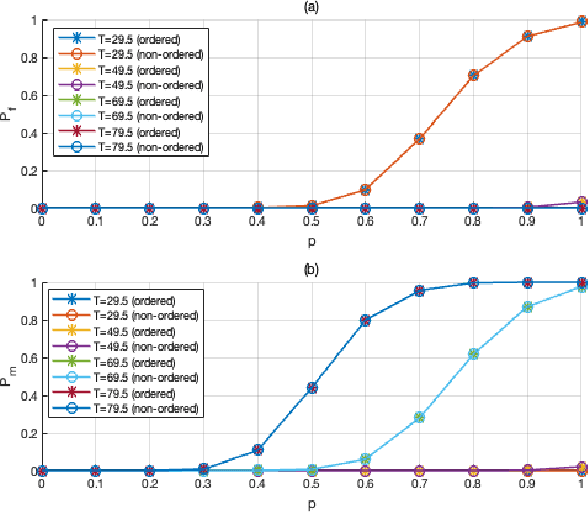
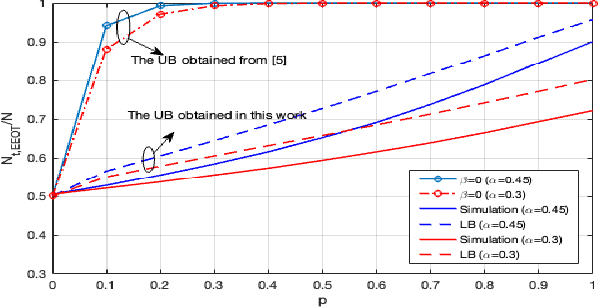
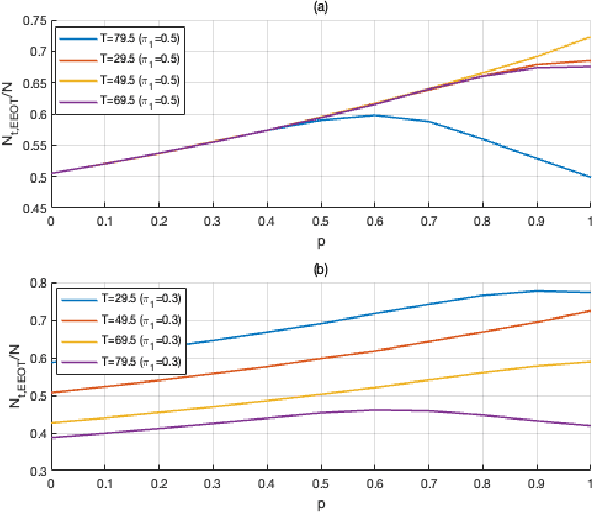
Abstract:In distributed detection systems, energy-efficient ordered transmission (EEOT) schemes are able to reduce the number of transmissions required to make a final decision. In this work, we investigate the effect of data falsification attacks on the performance of EEOT-based systems. We derive the probability of error for an EEOT-based system under attack and find an upper bound (UB) on the expected number of transmissions required to make the final decision. Moreover, we tighten this UB by solving an optimization problem via integer programming (IP). We also obtain the FC's optimal threshold which guarantees the optimal detection performance of the EEOT-based system. Numerical and simulation results indicate that it is possible to reduce transmissions while still ensuring the quality of the decision with an appropriately designed threshold.
Reputation and Audit Bit Based Distributed Detection in the Presence of Byzantine
Apr 14, 2022
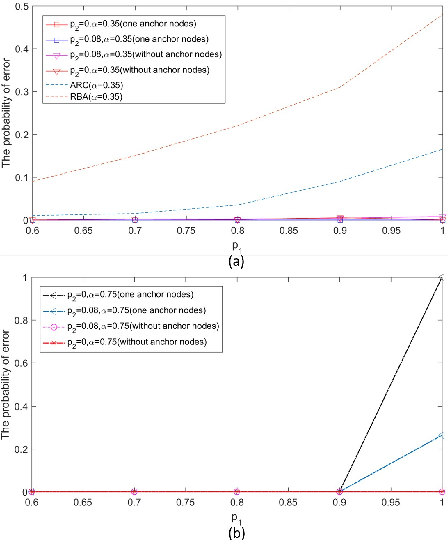
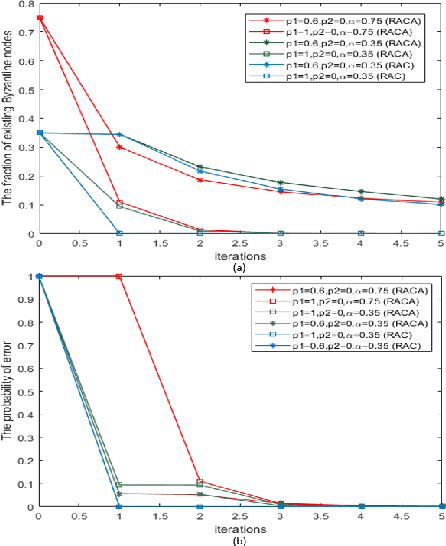
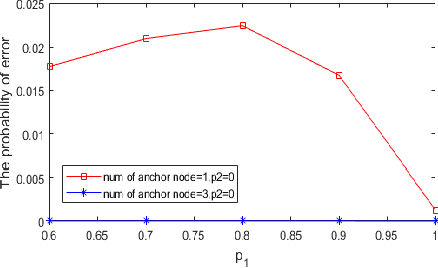
Abstract:In this paper, two reputation based algorithms called Reputation and audit based clustering (RAC) algorithm and Reputation and audit based clustering with auxiliary anchor node (RACA) algorithm are proposed to defend against Byzantine attacks in distributed detection networks when the fusion center (FC) has no prior knowledge of the attacking strategy of Byzantine nodes. By updating the reputation index of the sensors in cluster-based networks, the system can accurately identify Byzantine nodes. The simulation results show that both proposed algorithms have superior detection performance compared with other algorithms. The proposed RACA algorithm works well even when the number of Byzantine nodes exceeds half of the total number of sensors in the network. Furthermore, the robustness of our proposed algorithms is evaluated in a dynamically changing scenario, where the attacking parameters change over time. We show that our algorithms can still achieve superior detection performance.
Ordered Transmission-based Detection in Distributed Networks in the Presence of Byzantines
Jan 21, 2022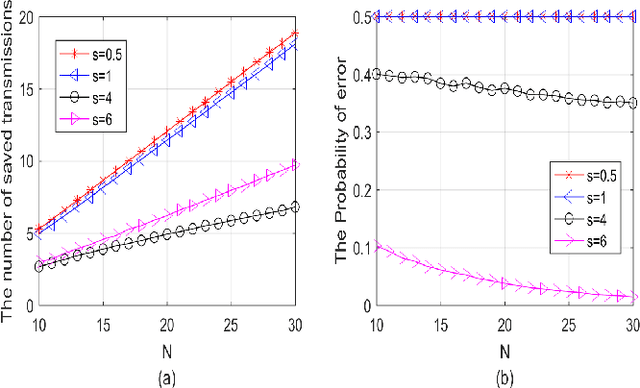
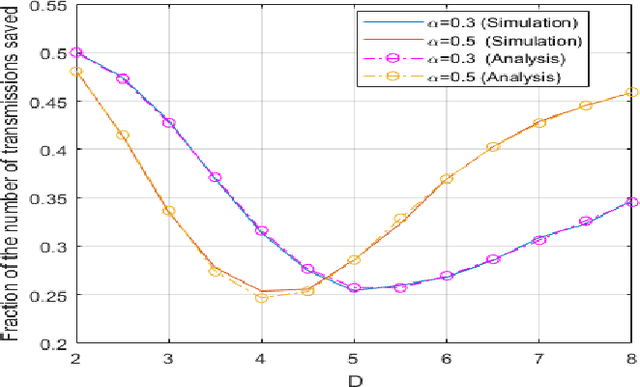
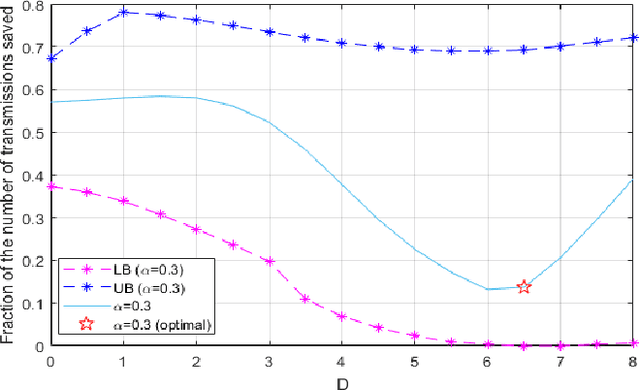
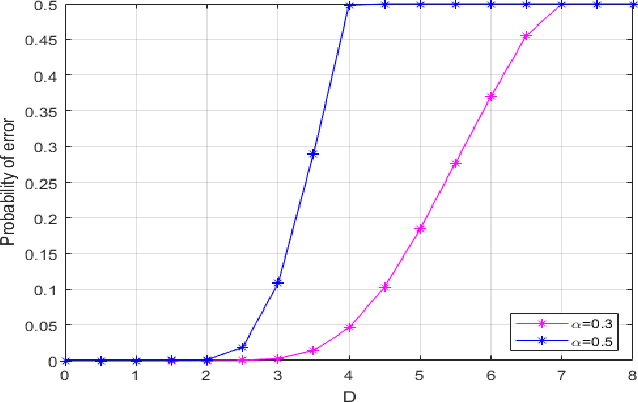
Abstract:The ordered transmission (OT) scheme reduces the number of transmissions needed in the network to make the final decision, while it maintains the same probability of error as the system without using OT scheme. In this paper, we investigate the performance of the system using OT scheme in the presence of Byzantine attacks for binary hypothesis testing problem. We analyze the probability of error for the system under attack and evaluate the number of transmissions saved using Monte Carlo method. We also derive the bounds for the number of transmissions saved in the system under attack. The optimal attacking strategy for the OT-based system is investigated. Simulation results show that the Byzantine attacks have significant impact on the number of transmissions saved even when the signal strength is sufficiently large.
Enhanced Audit Bit Based Distributed Bayesian Detection in the Presence of Strategic Attacks
Sep 27, 2021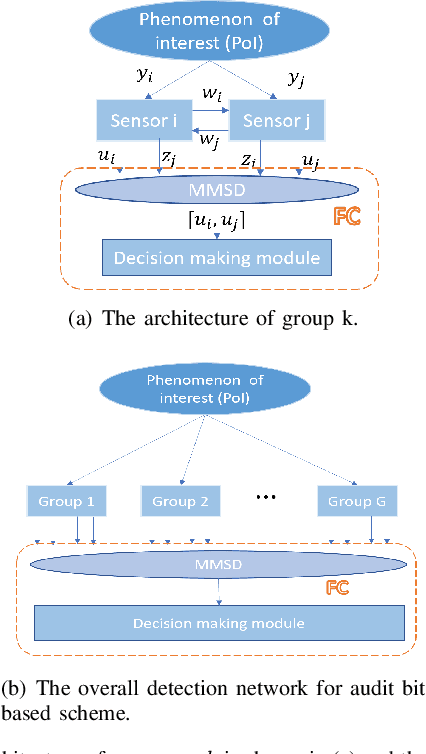
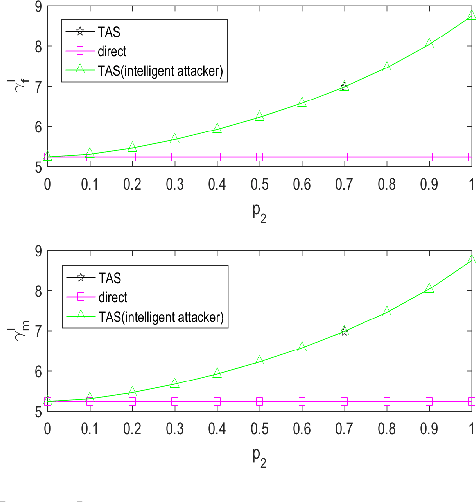


Abstract:This paper employs an audit bit based mechanism to mitigate the effect of Byzantine attacks. In this framework, the optimal attacking strategy for intelligent attackers is investigated for the traditional audit bit based scheme (TAS) to evaluate the robustness of the system. We show that it is possible for an intelligent attacker to degrade the performance of TAS to the system without audit bits. To enhance the robustness of the system in the presence of intelligent attackers, we propose an enhanced audit bit based scheme (EAS). The optimal fusion rule for the proposed scheme is derived and the detection performance of the system is evaluated via the probability of error for the system. Simulation results show that the proposed EAS improves the robustness and the detection performance of the system. Moreover, based on EAS, another new scheme called the reduced audit bit based scheme (RAS) is proposed which further improves system performance. We derive the new optimal fusion rule and the simulation results show that RAS outperforms EAS and TAS in terms of both robustness and detection performance of the system. Then, we extend the proposed RAS for a wide-area cluster based distributed wireless sensor networks (CWSNs). Simulation results show that the proposed RAS significantly reduces the communication overhead between the sensors and the FC, which prolongs the lifetime of the network.
 Add to Chrome
Add to Chrome Add to Firefox
Add to Firefox Add to Edge
Add to Edge